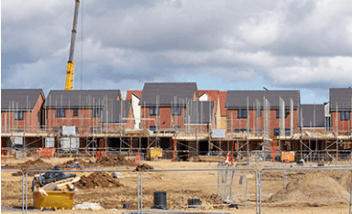The reaction to the UK government’s Autumn Statement—an update on UK economic performance and predictions, combined with tax and spending announcements—has been mixed to say the least. This is encapsulated in the contrasting front-page headlines from two of the country’s most trusted newspapers: the FT with Tax burden surges despite Hunt cuts vs The Times’ Hunt eases tax burden.
But no matter your political allegiance or how you interpret the fiscal policy pronouncements (for clarity, the FT is comparing the tax burden with the past, The Times is comparing with a counterfactual scenario of no Autumn Statement), new policies were revealed that will have an impact on property investors.
House building was the largest area for funding announcements with several new schemes aimed at getting Britain building:
- £110m nutrient mitigation schemes
Nutrient neutrality is an environmental consideration that requires a new residential development to mitigate the new nutrient load created from additional wastewater. This is a relatively new issue for local planning authorities (LPAs), with the government believing that regulations are blocking the development of more than 100,000 homes. By investing £110m in “high-quality nutrient-mitigation schemes” over the next 2 years, Jeremy Hunt believes 40,000 homes can be delivered over the next five years.
This is a positive move for the house-building industry, but the government has previously said that new housing supply must reach 300,000 homes a year, so 40,000 over five years is a drop in the ocean for solving the supply-demand imbalance.
- £32m to bust the planning backlog
In a similar vein, the chancellor announced an extra £32m in funding to “bust the planning backlog”, notably in new “quarters”: in Cambridge, London and Leeds. This money will address backlogs at LPAs, providing a boost to SME developers who suffer from balance sheet and resource constraints when navigating the planning process. A further £450m will be allocated to local authority housing funds to deliver 2,400 new homes.
- Consultation into rights to allow any house to be converted into two flats provided the exterior remains unaffected
As above, any steps taken to increase the housing supply should be seen as positive, but there will be concerns about the liveability of new dwellings that are created from dividing existing homes. At Shojin we believe that the UK requires quality new housing stock, and the only way to serious address the issue is to make it easier to fund and support developers.
With a softening in the UK property market, many observers were keen to see what the Chancellor had up his sleeve to ensure consistent demand in 2024 and beyond.
- Mortgage Guarantee Scheme extended for new mortgages from 31/12/23 to 30/06/25
This extension by 18 months is a welcome step to ensure demand and keep credit flowing within the housing market. The scheme offers lenders the financial guarantees they need for 95% of the mortgage on a house worth up to £600k. However, as this was the only step (no return for Help-to-Buy or a stamp duty holiday), it will remain to be seen whether this is sufficient to avoid a further slump in the market.
Despite pessimistic predictions for the UK sales market, the rental market shows no signs of cooling down; according to Rightmove, private home rents increased to their highest point on record in the three months up to October 2023. With this in mind, what support did the Autumn Statement offer to renters amidst the easing cost-of-living crisis?
- Local Housing Allowance cap lifted
The cap on Local Housing Allowance (LHA) rates is to be raised to the 30th percentile of local market rents from April 2024, essentially giving 1.6m households an average of £800 of support next year. The LHA is the rate used to work out what financial help a tenant can claim from the government when renting from a private landlord. Currently the rate has been frozen since 2020, meaning that soaring rents have not been tempered by government support for the most vulnerable. Once again, the only long-term, sustainable solution to ease rental pressures is to build more houses, and make it attractive for private investment to flow into the UK property sector. It's this mission, to democratise investing and help solve the UK's housing crisis, that drives Shojin.
Shojin CEO, Jatin Ondhia, had the following response to the Autumn Statement: “Housing could not be overlooked in this statement, not after Labour had made such a point of championing house-building as a key part of its pre-election campaign. Hunt struck some positive notes, such as plans to make it easier for councils to fast-track applications for infrastructure projects, and potentially making it easier for houses to be converted into flats.
“But overall, this was a lacklustre statement for the property sector, with little of substance to excite those building, buying and investing in UK real estate. In the longer-term, at least, I welcome the decision to adopt the recommendations from Lord Harrington’s foreign direct investment review. We must ensure the UK remains a hub for global investments, so any action to incentivise and remove friction for international investors seeking out opportunities in Britain is a step in the right direction, and the real estate sector could be a major beneficiary.”




















